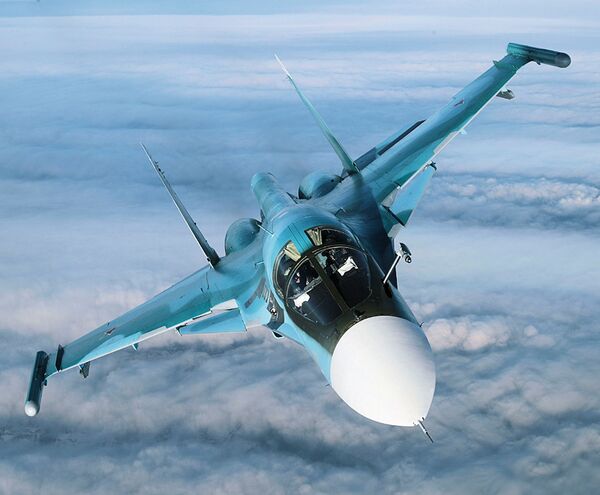
The VKS order of battle includes a wide range of aircraft, such as the Su-34 ‘Fullback', which has been observed operating over Ukraine (file photo). (Russian Ministry of Defence)
Military doctrine dictates that neutralising opposition air defences and air forces to enable freedom of movement for ground elements and facilitate air-to-ground operations should be a core aspect of any invasion plan. Although, at present, it is impossible to accurately quantify air losses on either side, there is no question that, after seven days of conflict, Russia has failed to achieve air superiority over Ukraine, let alone air supremacy. Furthermore, the Russian Air Force (Vozdushno-kosmicheskiye sily - VKS) has not played a decisive role in supporting the ground offensive.
Several factors could be at play to explain this failure. The first being that, at the strategic level, it wasn't ever intended to be that sort of operation and the massive application of air power was not considered necessary. There is evidence that the degree of Ukrainian resistance to a supposedly overwhelming opposing force was seriously underestimated, with the Ukrainian population expected to either welcome Russian forces with open arms or at least be ambivalent to an occupation.
Looking to read the full article?
Gain unlimited access to Janes news and more...







